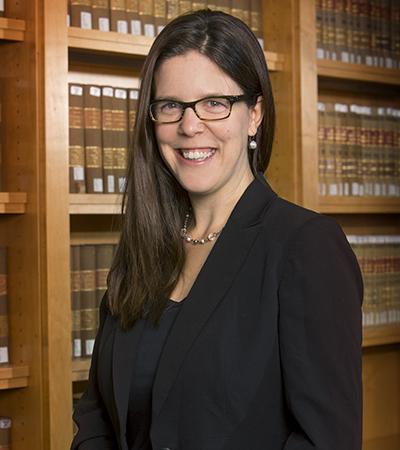
Shoemaker to Serve as Fulbright Canada Research Chair in Aboriginal Legal and Resource Rights
09 Jul 2018
Professor Jessica Shoemaker is one of five University of Nebraska-Lincoln faculty members to be named Fulbright scholars. She will serve as Fulbright Canada Research Chair in Aboriginal Legal and Resource Rights at the University of Alberta Faculty of Law in Edmonton, Canada.
Professor Shoemaker’s work as a legal scholar focuses on the intersection of property, law and development in Native American reservations in the United States. Her research examines the complex legal and social challenges generated by these modern land tenure systems and the difficult regulatory systems that overlay these lands and land uses. Through her Fulbright project, Professor Shoemaker will study and learn from recent indigenous land reform efforts in Canada and how they may be used to guide policy efforts in the United States and around the globe.
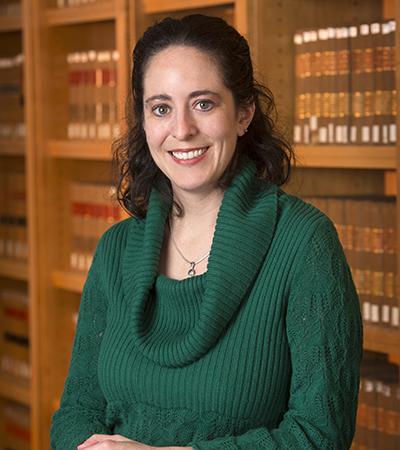
Blankley Publishes Arbitration Casebook
03 Jul 2018
Carolina Academic Press has released Arbitration: Law, Policy, and Practice, by Professor Kristen M. Blankley and co-authors Maureen A. Weston, Jill I. Gross, and Stephen Huber.
Arbitration: Law, Policy, and Practice provides the ideal blend of arbitration case law, problems, and experiential exercises for students. This book is the only arbitration casebook on the market with a full arbitration case file to enable students to experience the arbitration hearing from beginning to end, whether in the role of party, lawyer, or neutral. Special chapters on all aspects of the arbitration process enable students to explore the practical side of arbitration through the lens of both arbitrator and advocate. The book also comprehensively covers legal doctrine and ethical constraints essential to understanding modern arbitration, and includes chapters on preemption, arbitrability, judicial review, complex arbitration procedures, and international arbitration. Each chapter is filled with problems to test and apply the principles covered in the book’s principal cases.

Jill O'Donnell Named Yeutter Institute Director
27 Jun 2018
Jill O'Donnell will become the first director of the Clayton Yeutter Institute of International Trade and Finance at the University of Nebraska–Lincoln on July 1.
O'Donnell brings extensive experience in the international arena, working with public- and private-sector partners to address 21st-century challenges with an interdisciplinary perspective. Most recently, she was a consultant to the NATO Communications and Information Agency. She will use that experience as she works with the faculties of the colleges of Agricultural Sciences and Natural Resources, Business and Law to create Yeutter Institute programs and curricula that address challenges in international trade and finance.
O'Donnell has lectured on trends in international trade for corporate audiences and educators, taught courses in political science and U.S. foreign policy at the University of Nebraska at Omaha, and examined economic and policy themes related to South Korea as a consulting researcher and author for the Council on Foreign Relations. A native of Columbus, Nebraska, O'Donnell began her international policy career in Washington, D.C., serving on the legislative staff of U.S. Sen. Chuck Hagel. She earned her Master of Arts in international relations and international economics from Johns Hopkins University and her undergraduate degree from Washington and Lee University in Lexington, Virginia.
"Clayton Yeutter had a tremendous impact on international trade and finance, along with boundless confidence in the potential for Nebraska students to play leadership roles in a changing world," O'Donnell said. "I look forward to building an institute worthy of his legacy."
The institute will prepare students to understand, participate in and shape global trade and finance in an increasingly interconnected world. It will build on the strengths of the partnering colleges to offer undergraduate and graduate education, facilitate faculty research and conduct outreach efforts related to international trade and finance.
A renowned trade expert and University of Nebraska alumnus, Yeutter and his wife, Cristy, made a $2.5 million leadership gift to establish the Clayton K. Yeutter International Trade Program Fund, and the Nebraska legislature appropriated $2.5 million in 2015 to support establishing the institute. The Board of Regents formally approved the institute in December 2017, and the university and the University of Nebraska Foundation are continuing private fundraising.
To help fulfill Yeutter’s vision for the institute, Darci Vetter, former chief agricultural negotiator in the Office of the U.S. Trade Representative, served as diplomat in residence in 2017. Vetter will continue to work with the institute as the chair of its advisory board. Three endowed chaired professors will serve as the core faculty for the institute: the Duane Acklie Chair in the College of Business, the Michael Yanney Chair in the College of Agricultural Sciences and Natural Resources, and the Clayton Yeutter Chair in the College of Law.
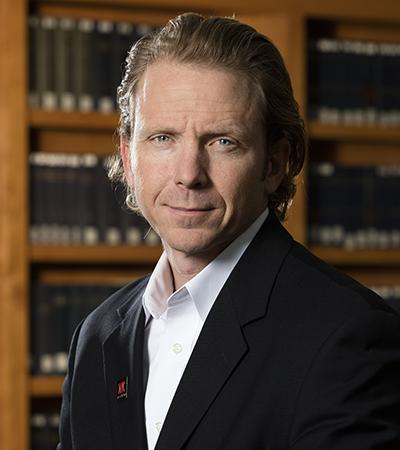
Schutz Appointed to Lower Platte South Natural Resources District Board of Directors
19 Jun 2018
Professor Anthony Schutz is the newest Lower Platte South Natural Resources District (LPSNRD) director. The Board of Directors appointed Schutz to represent Subdistrict 6 after a resignation created a vacancy in April. Schutz will represent Subdistrict 6 on the LPSNRD Board of Directors through 2018, then an elected candidate in the November 6th General Election will take the seat.
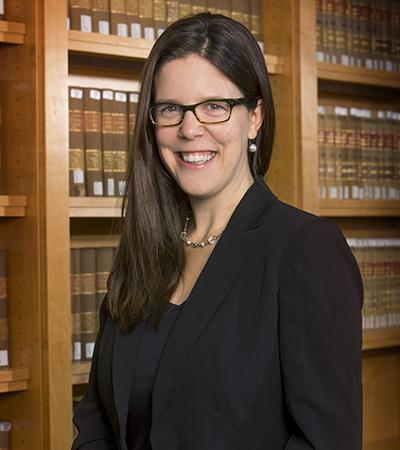
Shoemaker Appointed to Association of Law, Property, and Society Board
11 Jun 2018
Professor Jessica Shoemaker was appointed and approved to serve a three-year term on the Association of Law, Property, & Society (APLS) board at its annual meeting at Maastricht University in The Netherlands. ALPS is a vibrant organization of scholars from around the world that meets annually to “encourage dialogue across and among people in many disciplines that are interested in property law, policy, and theory.” It also publishes the Journal of Law, Property, and Society. Professor Shoemaker will join scholars from the U.S., South Africa, Canada, and across Europe on the board. She also was appointed Chair of the Program Committee and will be responsible for the program at the next three annual meetings (selecting papers, setting up panels, etc.).

Von der Dunk's article published in Uniform Law Review
05 Jun 2018
Professor Frans von der Dunk’s recent article, Billion-dollar questions? Legal aspects of commercial space activities, was published by the Uniform Law Review. The abstract is below.
Currently, several well-funded companies in the USA are in the process of developing long-term missions to asteroids to harvest mineral resources that are found there, including water. Other companies are getting close to flying manned missions on sub-orbital trajectories or even into low-earth orbits. Outer space, indeed, is becoming more and more a multi-billion-dollar sector. At the same time, outer space is gradually becoming a riskier environment—so-called ‘space debris’ is increasingly becoming a worry for public and private space activities alike. This raises major questions regarding the legal framework, which was developed initially in the 1960s and 1970s when commercial space activities were hardly on the horizon, yet until today remains the baseline for mitigating any negative or threatening aspects of the growing use of outer space. The present contribution aims to provide an overview of the general aspects of these questions as well as some of the current debates that are trying to move the current legal framework in the right direction.
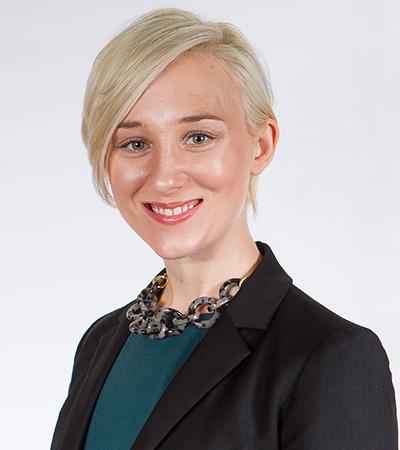
Barton Named Fellow in Rural Summer Legal Corps
31 May 2018
Second-year law student Kimberly Barton is one of 30 law students nationwide to be named a Summer Fellow in the Rural Summer Legal Corps, a joint program of Equal Justice Works and Legal Services Corporation.
Barton joins other public interest law students in addressing pressing legal issues facing rural communities in the areas of housing, domestic violence, public benefits, migrant farmworkers, tribal, and family law.
During the Rural Summer Legal Corps Fellowship, Barton will be hosted at Legal Aid of Nebraska, where she will focus on the organization’s REACH Project (Raising Effective Advocacy for Crime Victims Health and Safety) and is working towards increasing the number of domestic violence victims provided legal services in rural communities.
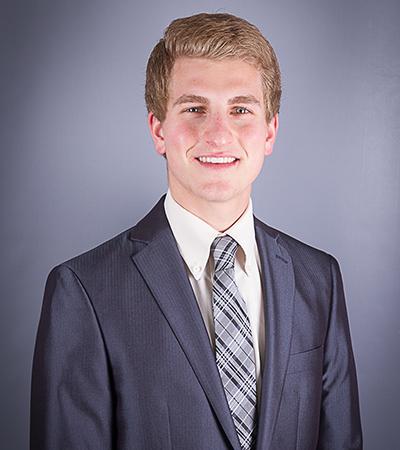
Kirshenbaum Awarded 2018 Koley Jessen Entrepreneurship Award
23 May 2018
The Weibling Entrepreneurship Clinic has selected Ryan Kirshenbaum as the 2018 Koley Jessen Entrepreneurship Award recipient.
Kirshenbaum graduated in May with the Class of 2018. During his time at Nebraska Law, Kirshenbaum was the secretary for the Nebraska Moot Court Board and a member of the Community Legal Education Project. He spent the fall semester as a student attorney in the Weibling Entrepreneurship Clinic.
The Koley Jessen Entrepreneurship Award was established to recognize Weibling Entrepreneurship Clinic students who have demonstrated exceptional legal skills, provided outstanding service to clients and furthered the mission of the Clinic. The firm was founded in 1988 with a vision of creating an environment that would foster trust and teamwork. Through the years, their guiding principles of integrity, client focus, and integrity have created the environment they envisioned years ago. Don Swanson, a partner in that firm, was instrumental in creating the endowed fund for this award.
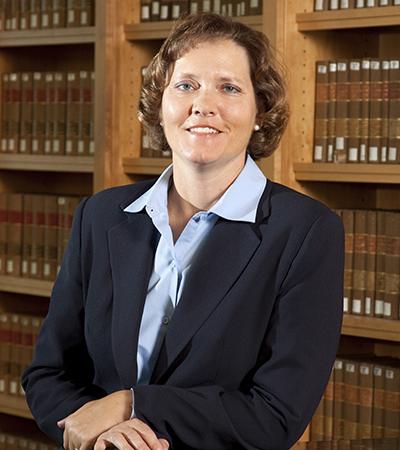
Medill's Articles Recognized by Tax Notes
21 May 2018
Each year, Tax Notes selects and summarizes for its readers “the 10 law review articles that employee benefits scholars and practitioners should have read (but possibly didn’t).” 159 Tax Notes 261, 365 (April 16, 2018).
Two recent law review articles authored by Professor Colleen Medill made this year’s Top Ten List in Tax Notes. “Regulating ERISA Fiduciary Outsourcing,” published in the Iowa Law Review, was selected as the number one article in the Retirement Plan Issues category. “ERISA Subrogation After Montanile,” co-authored by Professor Medill and College of Law graduate Alyssa M. Stokes, '17, and published in the Nebraska Law Review, was one of only two articles selected in the Health and Welfare Plan Issues category.
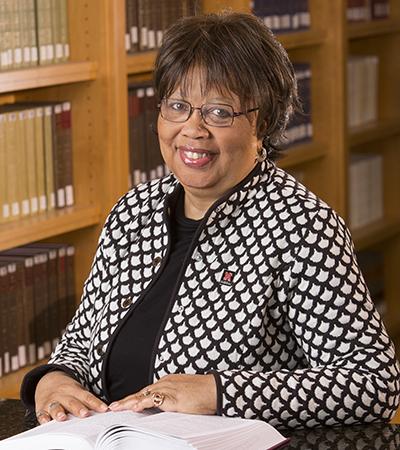
Shavers Appointed to American Law Institute and Administrative Conference of the United States
15 May 2018
Professor Anna Williams Shavers, Cline Williams Professor of Citizenship Law, has been elected to the prestigious American Law Institute (ALI). She becomes one of 44 new ALI members elected in December 2017 and attending their first meeting in May 2018. ALI is a national organization founded in 1923, following a study conducted by a group of prominent American judges, lawyers, and teachers known as The Committee on the Establishment of a Permanent Organization for the Improvement of the Law. It is the leading independent organization in the United States producing scholarly work to clarify, modernize, and improve the law. The elected membership is limited to 3,000 attorneys in the U.S. and abroad. As of today, there are 2,919 elected members. Consistent with her teaching and research interests in gender issues, she will participate in the Members Consultative Groups (MCG) on (1) Sexual Assault and Related Offenses and (2) Student Sexual Misconduct: Procedural Frameworks for Colleges and Universities.
Professor Shavers was also recently appointed as a public member to the Administrative Conference of the United States (ACUS). ACUS is an independent federal agency charged with convening expert representatives from the public and private sectors to recommend improvements to administrative process and procedure. She primarily will be participating as a member of the Rulemaking Committee.
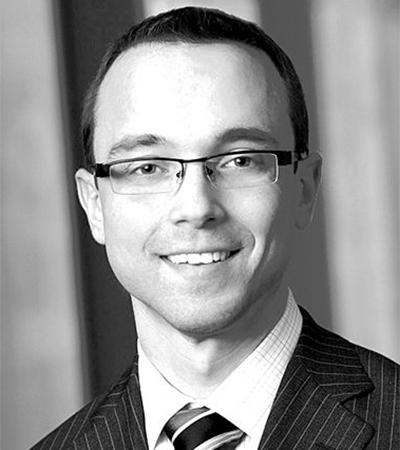
Grob, '07, Elected as a Fellow of the American College of Trust and Estate Counsel
23 Apr 2018
Jonathan L. Grob, '07, has been elected as a Fellow of the American College of Trust and Estate Counsel (ACTEC) by the regents of the college.
The American College of Trust and Estate Counsel is a national organization of more than 2,600 lawyers elected to membership by demonstrating the highest level of integrity, commitment to the profession, competence and experience as trust and estate counselors. All ACTEC Fellows have made substantial contributions to the field of trusts and estates law through writing, teaching and bar leadership activities.
Grob is a shareholder and Co-Chair of McGrath North's Tax, Trusts and Estates Practice Group. With more than a decade of experience, his practice focuses on all aspects of estate planning, business succession planning, estate and trust administration, federal and state taxation, tax exempt entities, charitable giving, and corporate law. Grob regularly counsels individuals, entrepreneurs, established business owners, and Fortune 500 companies on a variety of estate, succession, and tax matters.
Grob is listed in Best Lawyers, Great Plains Super Lawyers and was recently chosen for inclusion in Chambers High Net Worth Guide as a leading lawyer for wealthy individuals and families in Nebraska, 2017. Grob also earned the Chartered Advisory in Philanthropy® designation. In addition to an LL.M. degree from New York University School of Law, Grob holds a Juris Doctor degree, with high distinction from the University of Nebraska College of Law and a B.S.B.A. degree, cum laude from the University of Colorado-Denver. Grob joins partners Jeff Pirruccello and David Hefflinger who have previously been elected ACTEC Fellows.

Killian, '83, Receives 2018 Julie H. McFarlane Lifetime Achievement Award
17 Apr 2018
Doug Killian, '83, is a 2018 recipient of the Julie McFarlane Lifetime Achievement Award from the Oregon Criminal Defense Lawyers Association. The award recognizes juvenile delinquency and dependency defense attorneys who have made substantial, important, and enduring contributions to the administration of justice for their clients. Killian's careful preservation of the trial record has resulted in favorable appellate rulings frequently cited by other juvenile law practitioners. The fourth recipient of the award, Killian has practiced juvenile law for more than 20 years with the Metropolitan Public Defender in suburban Washington County.
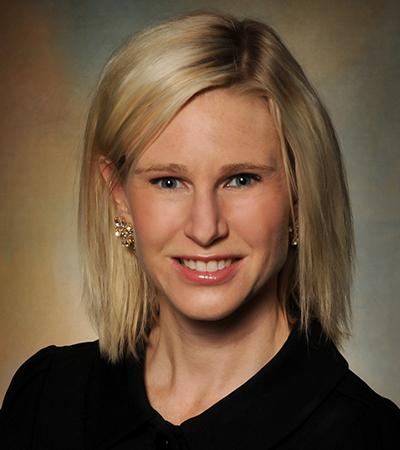
Union Bank & Trust Promotes Wilcox, '08
16 Apr 2018
Union Bank & Trust recently promoted Christine Higgins Wilcox, '08, to Director of Human Resources.
Wilcox joined Union Bank in 2010 as the Bank’s In-House Counsel. She also has previous work experience as an Attorney in private practice in the Kansas City metro. In her expanded role as Director of Human Resources, Wilcox will manage the Human Resources department, work with Executive Management on organizational initiatives relating to personnel, oversee the Leadership Development programs, and Chair the Human Resource Committee.
She graduated from the University of Nebraska-Lincoln with a Bachelor of Arts degree in History with minors in English and Political Science, as well as a Juris Doctor from the University of Nebraska College of Law. Wilcox serves on the Board of Directors for the Nebraska Bankers Association and is a Board Member of Zelle Human Resource Solutions. She serves on the non-profit boards for the Child Guidance Center, the Lincoln Arts Council, and the Nebraska Lawyers Trust Account Foundation and is a graduate of Leadership Lincoln Class 28.
Union Bank & Trust is a privately owned, Nebraska bank that offers complete banking, lending, investment and trust services. The bank has thirty-eight full service and loan production offices in Nebraska and Kansas. It is the third-largest privately-owned bank in Nebraska with bank assets of $3.8 billion and trust assets of $22.4 billion as of December 31, 2017.
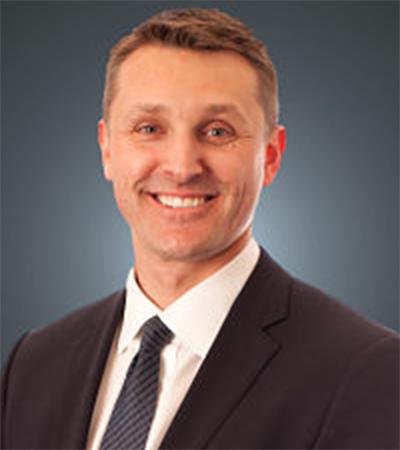
Wietjes, '03, Appointed to bionorthTX Board of Directors
16 Apr 2018
Dallas-based Polsinelli shareholder Jason A. Wietjes, '03, has been appointed to the 2018 board of directors for bionorthTX, a nonprofit, member-driven trade association serving and representing the life sciences industry in North Texas.
“We are pleased to welcome Jason to our board of directors for the coming years,” said Terry Foster, CEO of bionorthTX. “His presence elevates the stature of our board, and he will provide a depth of experience that complements and enhances our current board make-up. I truly believe we are stronger by having him.”
Composed of companies from North Texas’ largest employers to emerging startups, bionorthTX is committed to encouraging the development of a rich ecosystem that allows for the growth and success of North Texas life science companies, as well as to strengthening the economy of local communities. Through events, educational opportunities, networking and access to capital, bionorthTX bridges stakeholder relationships to catalyze partnerships and propel commercialization.
“I am eager to contribute to the board’s support and guidance of bionorthTX’s vital work connecting leaders to further the progress of the local life sciences ecosystem,” said Wietjes. “I look forward to the opportunity to utilize my background in, and passion for, biotech and biopharma to advocate on behalf of member companies to impact policy and continue the forward momentum that bionorthTX and its members have worked very hard to establish.”
As a shareholder in Polsinelli’s Intellectual Property practice group, Wietjes works with clients to strategically defend, enforce and monetize their intellectual property, with an emphasis on representing plaintiffs and defendants in complex intellectual property disputes. He represents clients in courts nationwide, including a long list of multi-million-dollar patent infringement suits involving an array of sophisticated technologies. In honor of his professional achievements, he has earned selection as a Barrister in the Honorable Barbara M.G. Lynn American Intellectual Property Inn of Court and recognition as a Texas Super Lawyers “Rising Star.”
A registered patent attorney with the USPTO, Wietjes is a member of the American, Texas and Dallas Bar Associations and the Intellectual Property Law Sections of each. He’s also a member of the American Intellectual Property Law Association, where he has served on the Biotechnology and Emerging Technologies committees, and is a past board member of the Dallas Chapter of Licensing Executives Society.
“Jason joining the bionorthTX board is another way for our firm to remain proactively involved in the thriving North Texas life sciences industry,” said Jon Henderson, managing partner of Polsinelli’s Dallas office and chair of the firm’s national Corporate and Transactional Practice Group. “We are proud and supportive of Jason’s work, both as an accomplished attorney and as an advocate for bioscience innovation and local economic growth.”
Highly active in the regional startup community, Wietjes also serves as a mentor at the Dallas Entrepreneur Center and Addison TreeHouse. He works with entrepreneurs, startup companies and their investors to evaluate and protect valuable intellectual property, assess risk and identify barriers to entry.
Wietjes earned his J.D. from the University of Nebraska College of Law in 2003 and completed his bachelor’s degree in biochemistry at the University of Nebraska in 2000.
About Polsinelli
Polsinelli is an Am Law 100 firm with more than 800 attorneys in 20 offices. Ranked #24 for Client Service Excellence1 and #10 for best client relationships2 among 650 U.S. law firms, Polsinelli was also named among the top 20 best-known firms in the nation3. The firm’s attorneys provide value through practical legal counsel infused with business insight, and focus on health care, financial services, real estate, intellectual property, mid-market corporate, labor and employment, and business litigation.
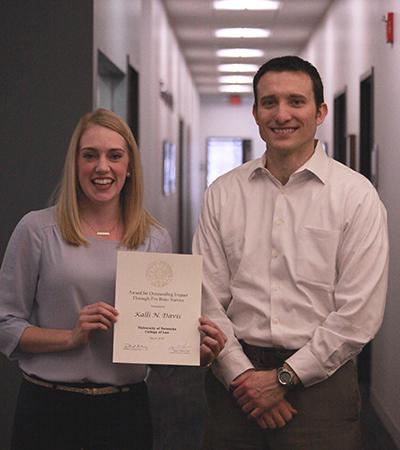
Davis Named Recipient of the 2018 Student Award for Outstanding Impact Through Pro Bono Service
12 Apr 2018
Kalli Davis, ’18, has been named the recipient of the 2018 Student Award for Outstanding Impact Through Pro Bono Service.
During her time at the College of Law, Kalli served as a volunteer and chair for the CLEP program—organizing constitution day and other events, recruiting and coordinating volunteers, covering multiple shifts, and always being willing to fill in when gaps arose. In addition to her amazing work with CLEP, Kalli committed her summers to Legal Aid of Nebraska, serving Nebraska’s poor. The impact she has had during her three years at the College of Law is commendable, impressive, and most certainly outstanding.
Each year one law student is recognized for their commitment to pro bono service while enrolled at the College of Law. The impact may be measured by reviewing a single act or project, or multiple acts or projects performed by the student during his or her enrollment at the College of Law. The selection committee takes into consideration not only the total number of pro bono hours performed, but also the overall impact the pro bono work has had on the community and underserved populations.
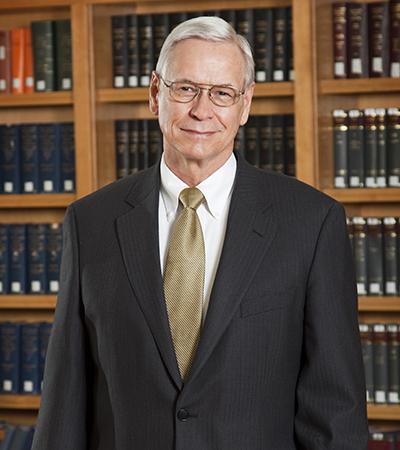
Gardner publishes updated book on juvenile law
10 Apr 2018
Carolina Academic Press has released Understanding Juvenile Law, fifth edition, by Martin Gardner.
The book discusses the various bodies of law in relation to a fundamental issue permeating the entire field of juvenile law: the extent to which the law should protect young people rather than recognize them as autonomous persons. While the law traditionally adopted a protectionist posture, recent legal developments appear to recognize autonomy rights of adolescents in certain contexts. These developments are praised by some commentators who advocate wholesale rejection of the paternalistic model in favor of a system that treats adolescents as full-fledged persons under the law. This book does not advocate any particular resolution of the current debate about the nature of the rights of young people; rather, it suggests that sensitivity to the issues and arguments entailed in that debate is essential to any true understanding of the present state of juvenile law.
With these concerns in mind, Understanding Juvenile Law begins with a general discussion of the nature of the rights of juveniles and the perception that young people constitute a unique class under the law. This theoretical introduction serves as a background for subsequent discussion of juvenile law doctrine. The discussion separates aspects of juvenile law arising outside the juvenile justice system (defined in this text as the system of separate courts organized to deal with "delinquents" and "status offenders") from those arising within that system. This division is created as a useful means of organizing the doctrinal material, given the extensive body of rules that govern the juvenile justice system. Moreover, this organization permits the juvenile justice section to stand by itself as an independent text for students in courses that cover only that aspect of juvenile law.
This edition adds new material dealing with problems of child abuse and neglect outside the family. Liability of religious and educational organizations is addressed, including statutes of limitations issues. The Educational organization material includes discussion of rights of students to be free from harassment and bullying.

Nebraska Law announces partnerships on manual on international law of military space operations
09 Apr 2018
Space and military law experts from Australia, the United Kingdom and the United States have joined forces to take the lead on understanding how our Earth-bound laws will be applied in times of armed conflict in outer space.
Some of the best legal and policy minds at the University of Adelaide, UNSW Canberra, University of Exeter, and University of Nebraska College of Law will draft The Woomera Manual on the International Law of Military Space Operations.
The Woomera Manual will become the definitive document on military and security law as it applies to space. The project will be completed in 2020 and will draw on the knowledge of dozens of legal and space operations experts from around the world.
The founding leaders of the Woomera Manual are: Professor Melissa de Zwart and Professor Dale Stephens (Adelaide), Professor Rob McLaughlin (UNSW Canberra), Professor Michael Schmitt (Exeter), and Professor Jack Beard (Nebraska Law).
"Conflict in outer space is not a case of 'if' but 'when'. However, the legal regime that governs the use of force and actual armed conflict in outer space is currently very unclear, which is why the Woomera Manual is needed," says founding partner Professor Melissa de Zwart, Dean of the Adelaide Law School, University of Adelaide.
"The few international Treaties that deal with outer space provide very little regulation of modern space activities, including both military and commercial uses of space. Therefore, we need to cast our gaze more widely in our approach to determining what laws are applicable in space," she says.
Rob McLaughlin, Professor of Military and Security Law at UNSW Canberra, says: "Space is a key enabler for communications, surveillance, early warning, navigation systems and is a critical security and conflict domain.
"Such extensive use of space by military forces has produced a growing awareness that spacebased assets are becoming particularly vulnerable to adverse actions by potential competitors," Professor McLaughlin says.
The US Secretary of the Air Force, Heather Wilson, declared last year that the US must start to prepare for the possibility of armed conflict in outer space. Meanwhile, US President Donald Trump also has recently made a call for a dedicated US military space force.
"We can no longer afford to ignore the legal implications of the military use of space," says Michael Schmitt, Professor of Public International Law at Exeter Law School, University of Exeter.
"The four universities who form the founding partnership of the Woomera Manual project are committed to developing an agreed understanding, and then subsequent articulation, of how international law more generally applies to regulate military space activities in a time of rising tension and even outright armed conflict," he says.
Jack Beard, Associate Professor with the University of Nebraska College of Law, says: "The Woomera Manual will be drafted in the full tradition of other manuals that have been developed by legal and policy experts over the last 20 years, including the San Remo Manual on Naval Warfare, the Harvard Manual on Air and Missile Warfare, and the Tallinn Manuals (1.0 and 2.0) dealing with laws applicable to cyber operations and warfare.
"Such manuals have proven to have a significant impact in their respective fields, and we envisage that the Woomera Manual will have the same impact for the military uses of space," Professor Beard says.
Why "Woomera"?
The Woomera Manual is named after the Woomera township in South Australia, which has a long association with both Australian and multi-national military space operations. In 1967, Woomera was the site from which Australia successfully launched its first satellite, becoming only the fourth nation in the world to do so. In Australian Indigenous culture, a "woomera" is a traditional spearthrowing device. The name "woomera" originates from the Dharug language of the Eora people.
Media contacts:
Elsbeth Magilton, Executive Director of the Space, Cyber, and Telecommunications Law Program, University of Nebraska College of Law, Phone: 402-472-1662, elsbeth@unl.edu
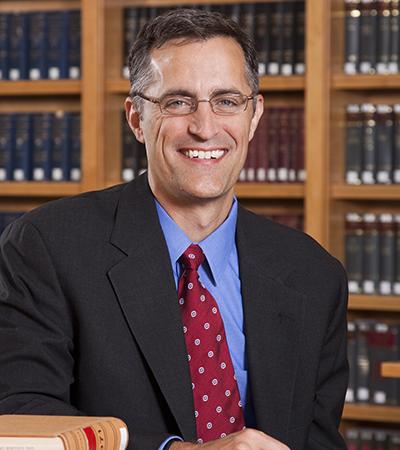
Moberly's article published in North Carolina Law Review
09 Apr 2018
Dean Richard Moberly’s recent article Confidentiality and Whistleblowing, was published by the North Carolina Law Review. Below is a brief summary of the article.
Companies often require confidentiality from their employees. Maintaining corporate secrets helps protect intellectual property and gives a company an edge in a competitive marketplace. The law generally supports this corporate desire for secrecy through statutes that prohibit disclosing trade secrets and by enforcing agreements requiring confidentiality from employees, even if those agreements bar employees from working for a competitor in order to keep the employees from revealing secrets. As a result, companies have utilized this legal structure aggressively to enforce trade secret laws, confidentiality agreements, and non-competition provisions.
Whistleblowing can undermine confidentiality. An employee blows the whistle by revealing inside information—often organizational misconduct—to an outsider, such as a government regulator. This disclosure, by definition, contains information the corporation would rather keep secret. Even if a company intends to correct and punish the underlying misconduct internally, whistleblowing can cause significant disruption because the company has to manage increased oversight from the government, bad publicity, and heightened public scrutiny. Once the information is revealed externally, companies can have a harder time fixing the underlying problem because battle lines are drawn and positions become entrenched. Nevertheless, over the last fifteen years, the law—in particular federal law—has increasingly encouraged whistleblowing as a means of corporate oversight. Newly enacted federal statutes broadly protect whistleblowers from retaliation, require corporate structures that make whistleblowing easier, and even reward employees who reveal certain types of corporate misconduct.
In short, the federal government has aggressively encouraged employees to become whistleblowers. In response, corporations have tried to mitigate potential damage by relying on broad confidentiality provisions to discourage employees from revealing insider information. As a result, uncertainty abounds when the corporate desire for confidentiality clashes with the government’s desire for employees to blow the whistle. This Article is about the increasing tension between these countervailing trends.
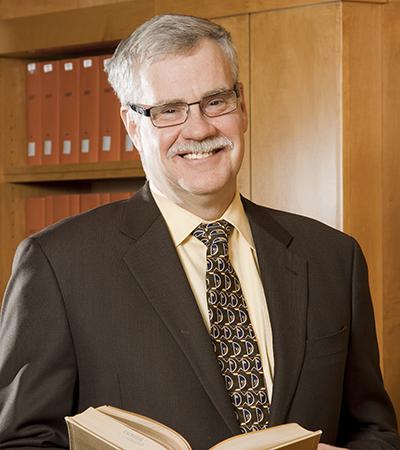
Lenich publishes updated book on Nebraska Civil Procedure
05 Apr 2018
Thomson Reuters (West) published the 2018 edition of Professor John Lenich’s book, Nebraska Civil Procedure. The book has nearly 1200 pages of text and provides an in-depth analysis of the procedural rules that govern jurisdiction, venue, parties, pleading, joinder, service, motions to dismiss, interlocutory remedies, and discovery in civil actions filed in Nebraska state court. The book also discusses an assortment of other topics such as statutes of limitations and sanctions.
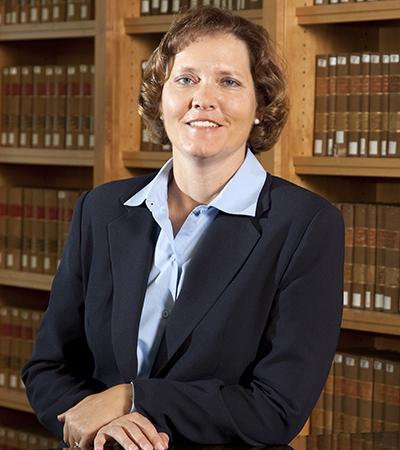
Medill named top teaching award winner by the University of Nebraska
03 Apr 2018
University of Nebraska President Hank Bounds today announced the 2018 winners of the university’s most prestigious awards for teaching, research and engagement.
The university-wide President’s Faculty Excellence Awards recognize faculty whose work has had a significant impact on students, the university and the state.
“The University of Nebraska is one of the most important drivers of our state’s economic competitiveness and quality of life. Our faculty, who are among the nation’s leaders in what they do, deserve a great deal of the credit,” Bounds said. “These faculty carry out our missions of teaching, research and service on a daily basis. I’m honored to serve among such dedicated and talented colleagues and to lift up their work to the university community and all Nebraskans.”
Winners – who are selected by a university-wide committee of faculty members and, in the case of the engagement award, community members – receive $10,000 each, a presidential medallion and an engraved plaque. Awards will be presented at a luncheon hosted by Bounds this spring.
The 2018 winners are:
Teaching
Outstanding Teaching and Instructional Creativity Award (OTICA): recognizes individual faculty members who have demonstrated meritorious and sustained records of excellence and creativity in teaching.
Tammie Kennedy, Ph.D., Associate Professor of English, University of Nebraska at Omaha: Since joining UNO’s faculty in 2009, Kennedy has developed 10 courses to meet the multidisciplinary interests of students and encourage them to create public scholarship for audiences outside the classroom. Much of her scholarly and creative work focuses on the rhetoric of remembering practices and how memory shapes identity, writing and knowledge production, especially for marginalized groups. She co-edited Rhetoric of Whiteness: Postracial Hauntings in Popular Culture, Social Media, and Education, which was named 2018 Best Co-Edited Book by the Conference on College Composition and Communication. Kennedy has also published in more than 20 top-tier journals and contributed chapters to several books. Kennedy serves as an affiliate faculty for the Women’s and Gender Studies Program and the Thompson Learning Community, and directs the Women’s Archive Project, a student-produced digital archive exhibiting the experiences and contributions of UNO-affiliated women.
Colleen Medill, J.D., Robert and Joanne Berkshire Family Professor of Law in the College of Law, University of Nebraska-Lincoln: Medill is recognized nationally for her innovative teaching techniques in the areas of employee benefits law, property law and professional legal skills development. Among her peers, she is known as a “teacher of teachers” who explains and models her techniques through the extensive teachers’ manuals that accompany her textbooks. Medill’s first law school textbook, Introduction to Employee Benefits Law: Policy and Practice, has been used at more than 40 accredited law schools, and she is a leader in the integrated teaching of doctrinal theory, legal skills and the professional ethical responsibilities of lawyers. At the College of Law, she has twice been selected by law students as Professor of the Year and has been honored with the Alumni Council’s Distinguished Faculty Award. She teaches three of her four courses using textbooks that she authored.
Research
Outstanding Research and Creative Activity (ORCA) Award: recognizes individual faculty members for outstanding research or creative activity of national or international significance.
David Hage, Ph.D., Hewett University Professor of Chemistry in the Department of Chemistry, University of Nebraska-Lincoln: Hage, who joined the UNL faculty in 1989, has carried out research at the interface of chemistry, biochemistry and clinical chemistry for more than 30 years. His work has focused on the creation and development of new detection and separation methods for chemical and biochemical analysis for important applications in the life sciences, pharmaceutical research and environmental testing. He has published more than 285 scientific papers, book chapters and books in these areas. He has also edited a handbook in the area of affinity chromatography, his field of scientific expertise, and he holds six patents in this area. In addition, Hage has written several college-level textbooks on the topic of chemical analysis. Hage is currently editor-in-chief for the Journal of Chromatography B and is a fellow in the American Association for the Advancement of Science and the National Academy of Clinical Biochemistry.
Dennis Molfese, Ph.D., Mildred Francis Thompson Professor in the Department of Psychology, University of Nebraska-Lincoln: Molfese was the founding director of UNL’s Center for Brain, Biology and Behavior. A developmental cognitive neuropsychologist who has been continuously funded since 1975, Molfese has extensive experience in conducting large-scale, longitudinal studies recording brain imaging and behavior measures from newborn and older infants, toddlers, preschool, school-age children, adolescents and adults. He revolutionized understanding of brain structure-function relations across the lifespan and broke new ground investigating dynamic brain changes associated with the short- and long-term development of language, social interactions, memory and cognitive processes from birth into adulthood. In research supported by NASA and NIH, Molfese and colleagues noted the detrimental effects of sleep loss on daily functioning and problem-solving skills on earth and in outer space. Molfese’s research using neuropsychological and multiple brain imaging techniques to study the effects of concussions on athletes noted even one concussion significantly impairs brain functioning.
Engagement
Innovation, Development and Engagement Award (IDEA): recognizes faculty members who have extended their academic expertise beyond the boundaries of the university in ways that have enriched the broader community.
Joseph Evans, Ph.D., Professor of Psychology at the Munroe-Meyer Institute and the Behavioral Health Education Center of Nebraska, University of Nebraska Medical Center: A program innovator, Evans developed the pediatric integrated behavioral health in primary care model at UNMC that has been extended to 42 integrated care programs in Nebraska and numerous other states. Children, adolescents and families from more than 225 cities, towns and villages have been provided behavioral health services thanks to the program Evans developed. Evans was also instrumental in establishing the Nebraska Internship Consortium in Professional Psychology, the UNMC Munroe-Meyer Institute doctoral program in applied behavior analysis, and the MMI Autism Care for Toddlers program. He has been the recipient of more than $19 million in federal and state grants and contracts. Evans is committed to improving access to behavioral health for underserved rural and inner-city residents and has been widely recognized for his work in improving the quantity and quality of the behavioral health workforce.
Nicholas Stergiou, Ph.D., Professor and Distinguished Community Research Chair in Biomechanics; Director of the Biomechanics Research Building and the Center for Research in Human Movement Variability; and Assistant Dean of the Division of Biomechanics and Research Development, University of Nebraska at Omaha: Stergiou is the founding chair of the first-ever academic biomechanics department that graduates students with a B.S. in biomechanics. His research focuses on understanding variability inherent in human movement and he is an international authority in the study of nonlinear dynamics. Stergiou’s work spans from infant development to older adult fallers, and has impacted training techniques of surgeons and treatment and rehabilitation of pathologies like peripheral arterial disease. Stergiou has received more than $30 million in funding from the NIH, NASA, NSF and other agencies. He received the largest grant in UNO history, a $10.1 million NIH grant that allowed him to develop the Center for Research in Human Movement Variability. Stergiou also has several inventions and leveraged private giving to build the 23,000-square-foot Biomechanics Research Building that opened in 2013 as the first building in the world dedicated to biomechanics research.